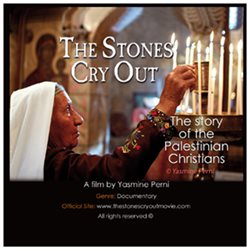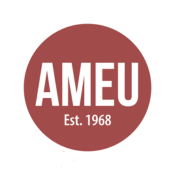Reviewed by Edward Dillon
Viewing “The Stones Cry Out” gave me a sense of déjà vu. I have heard this story before.

Some of the protagonists have grown old along with me. There is Father Elias Chacour. When I first heard of him he was a humble Melkite priest in the Galilee. Now in the documentary he is the Melkite patriarch of the Holy Land. His fate seems to be to preside over a community that is disappearing. Indeed, the Palestinian Christian community is fast disappearing in the land of Palestine.
That is the urgent message of this documentary.
There are two narratives concerning Palestine: the Zionist narrative and the Palestinian narrative.
I used to know only the Zionist narrative and was more shaped by it than I realized.
To check out the other narrative has been a wrenching experience, and I find it hard to express my present view. But it has to be expressed, and expressed simply: The Zionist narrative is a work of heroic pretense. In other words it is a lie. The Palestinian narrative is simply the tragic truth.
This well edited, 56-minute documentary concentrates on a part of that tragic history: the fate of the Christian communities in historic Palestine. Yasmine Perni, the Italian journalist, photographer and TV producer who made it, scoured official Palestinian, Israeli and U.N. film archives, and traveled all over historic Palestine to document the facts.
Some striking details stay with me:
- The U.N. vote dividing Palestine took three minutes in Nov. 1947. While Palestinians were sleeping, their land was given away. In the section of the roll-call that the film records, the United Kingdom abstains; the United States says Yes.
- In another scene, a voice-over says “Why do you seek the Living One among the dead? He is not here.” And the voice goes on: “If you just visit the holy sites with the stone churches you are missing the living stones—the Christian communities that have been here from the first days of the Christian movement.”
Some Israeli voices have been raised to show the lies behind the Zionist narrative. I think of Matti Peled’s son, Miko, or Ilan Pappe’s masterful work on the ethnic cleansing of Palestine.
But I come close to despair when I keep hearing the voice of a priest interviewed in the documentary. He, too, speaks simply. When it comes to Israel, he says, no one knows how to speak the truth to power.
We Americans have been egregious accomplices to the ongoing Israeli crimes against a defenseless people; we have much to be ashamed of.
I for one felt like a guilty bystander as I watched this excellent film.
May we find our voice and thunder it for all to hear. ■
Edward Dillon is a member of AMEU’s Board of Directors.
